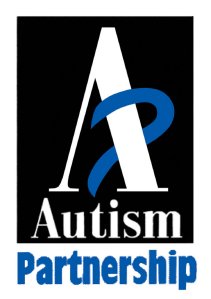 April is Autism Awareness Month, and this year it was a time to dust off some good-old-fashioned pencils and get a little education at the Teaching Social Skills That Change Lives Workshop, hosted by the Autism Partnership Foundation.
April is Autism Awareness Month, and this year it was a time to dust off some good-old-fashioned pencils and get a little education at the Teaching Social Skills That Change Lives Workshop, hosted by the Autism Partnership Foundation.
I was super pumped to attend this conference because I tutor so many students from Preschool through Law School who present with various signs of Autism Spectrum Disorder (ASD). It’s a diagnosis that’s really hard for the schools, parents, and even general doctors to pinpoint because there are so many little, tiny signs that one can easily miss. Oftentimes, that’s exactly what happens and it leaves the parent wondering and the student struggling throughout their formal and social education.
Autism Partnership was formed by a small group of UCLA psychologists in the 1970’s, and since then has been hard at work researching, developing new programming, and educating others both in the US and abroad. They are fantastic! They provide assessments, social skills groups, counseling services, an entire program based on educating schools about bullying, in home support intervention, research, and parent support with one mission: to help the child thrive. I know I’m going on and on but it was just so amazing to hear a new kinder, gentler take on ABA Therapy: less rote and more human.
One of the techniques they use, and one that may be intuitive to most of us but not to those with ASD, is this idea of Discrete Trial Training (DTT), a way to break-down every instruction, step-by-step so that the child can learn to process the information in a formulaic way. You probably already do this naturally and don’t even realize it. Here’s how it works: If I say to Kayla, an atypical developing seven-year-old: Hey, Kayla. Would you throw me that ball over there? Kayla might stand there because she doesn’t physically have the ball in her hand so to her, logically, she can’t throw it because it’s not there. She hasn’t yet learned how to read the implied action.
Now, using DTT I would say: Hey, Kayla.
(1) Do you see that ball over there (pointing)?
(2) Would you walk over to that ball
(3) pick it up
(4) hold it your hand
(5) walk back to where you are standing now, and
(6) then throw it to me?
Depending on Kayla’s development, those could be a lot of steps and we would have to revisit many of them several times over. When each step is accomplished I would give Kayla verbal praise as positive reinforcement. Then we would practice this action again, until it became intuitive for Kayla. See what may seem like simple behavior for a typical developing child can be very difficult for a child with ASD, but if we can teach these steps in a patient and kind manner we’ve already accomplished so much.
As April comes to an end and Autism Awareness Month comes to a close I’m so excited because there are a ton of great resources out there for you and your family. If your child is diagnosed with ASD or has not been officially diagnosed but you have your suspicions that something is just not quite right, check out a few of these great programs to help guide you along the way:
- Autism Partnership
- Terry Tutors: Tutoring for Learning Differences
- Autism Therapies
- Autism Clinic at CSUN
- PEERS at UCLA
- Expressions
- Different Roads
- LA Asperger Syndrome Parents’ Support Group
- Social Foundations LA – For children who do not have ASD but need a little help with social skills
—
SUBSCRIBE for new posts every Family Friday!
—
Don’t forget to head on over to TerryTutors.com or give us a call at 310.254.0909 for more info about our Private Tutoring & Family Coaching services in the Greater Los Angeles area
